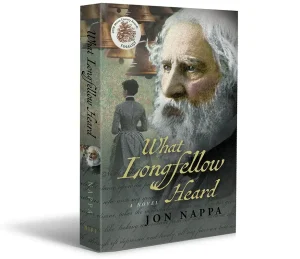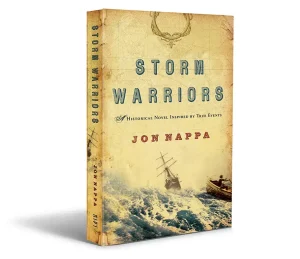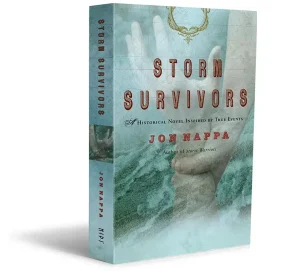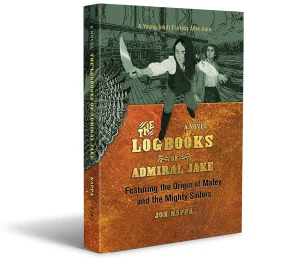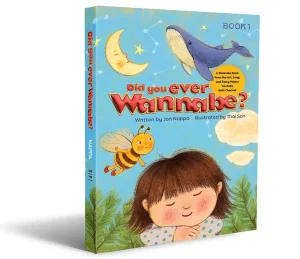What Longfellow Heard
A Maine Literary Award Finalist - inspired by the carol "I Heard the Bells on Christmas Day."
ORDER TODAY
What Longfellow Heard brings to vivid life the triumphs and heartbreaks of America’s first literary superstar. Through love, loss, and artistic struggle, Longfellow emerges as both heartwarming poet and heartbroken but hopeful human being — revealing timeless truths and triumphant struggles that still resonate today. A moving literary novel — perfect for history lovers, poetry fans, and anyone who loves hope-filled Christmas stories.
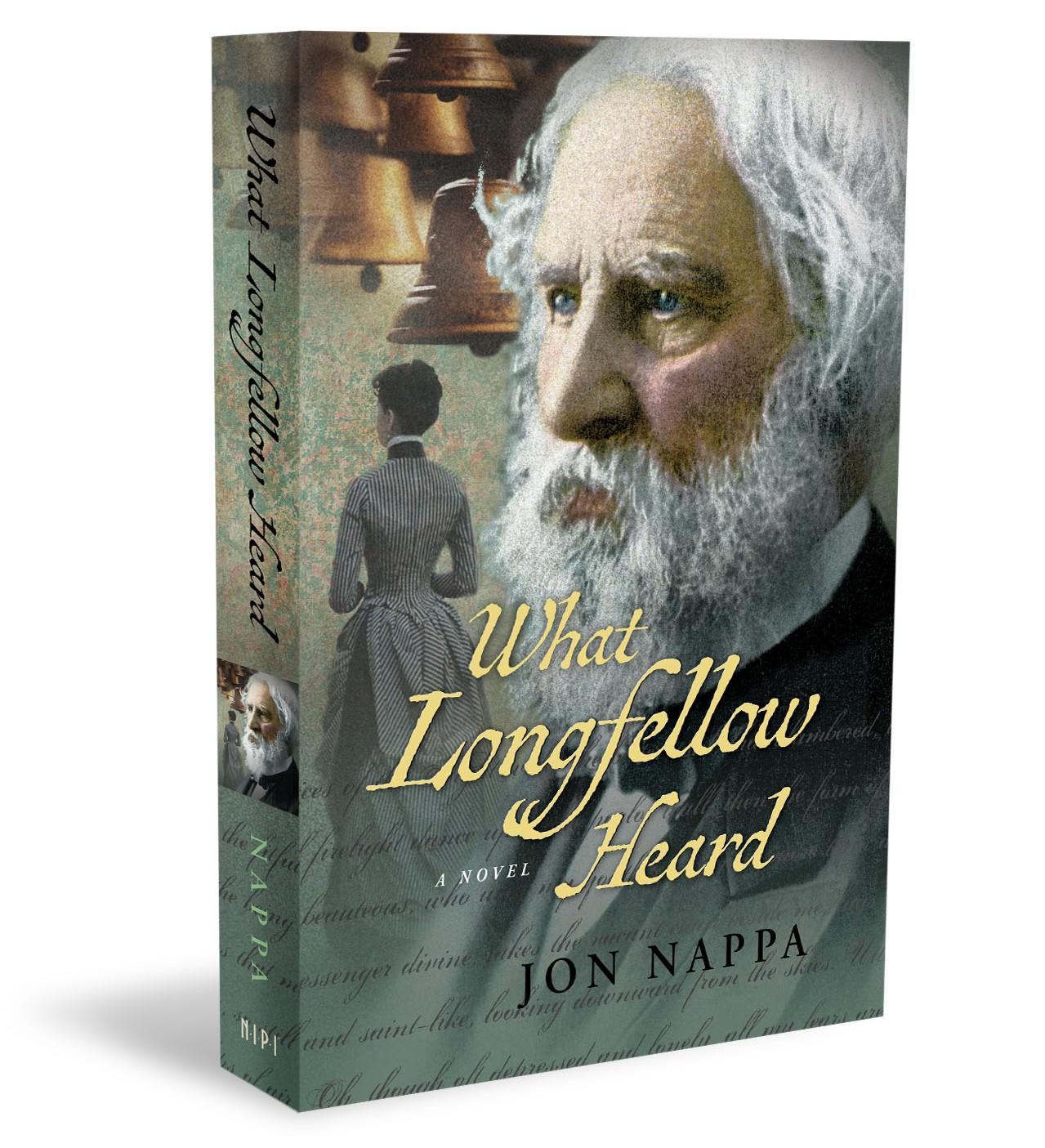
Why Readers Love What Longfellow Heard
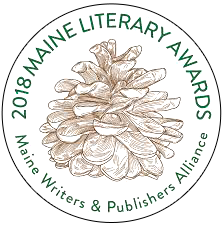
- 2018 Maine Literary Award Finalist
- A gripping, novelized portrait of America’s great poet
- Deeply researched over 12 years
- Evokes the beauty of Longfellow’s original voice
- Rich period detail and atmosphere
- Endorsed by award-winning writers
- Explores timeless themes of art, faith, love, and loss
- Makes you feel like Longfellow is speaking directly to you
Praise for What Longfellow Heard
“A perfect gift for literary friends.”
Historical Faves Book Club Review
“A deeply moving read.”
Online Reviewer
“The challenge: tell a convincing tale in the voice of one of America’s most lauded wordsmiths. Talk about setting a high bar for yourself as a writer! But Nappa is more than up to the task. Writing with passion, compassion, wit, and erudition, Nappa delivers a compelling story laced with poetry and real insight into Longfellow’s life and his art.”
ROY SEKOFF
“Henry comes vibrantly to life in these pages, and the way Nappa massages in Longfellow’s poetry and writing process is very deft.”
Richard Russo
SHAYE AREHEART
“A spectacular novel… imagery astounding… conjures the poet to life.”
Graeme Dempsey
Authentic! As a former teacher at Longfellow School, this book illuminated what we taught and learned about Henry. The first person point of view was fresh and his voice clearly came through. Well researched and authentic. Loved it!”
Susan F. Bean
The Story Behind the Novel

What Longfellow Heard grew out of more than a decade of immersion in Longfellow’s writings and personal letters. Over twelve years, author Jon Nappa built a 16-foot timeline across the walls of his writing studio, pored over Longfellow’s journals and countless works, and uncovered both the brilliance and the sorrows that shaped the famous poet.
Longfellow’s life speaks powerfully to our own struggles with love, loss, and purpose—reminding us that even in the darkest moments, hope and faith can light the way forward. This novel connects us not only to the man behind the poetry, but also to our own life journeys, all set against the backdrop of a fractured nation in a time of great strife.
A Glimpse Into Longfellow’s World
(An Excerpt from What Longfellow Heard)
I wanted to write songs, and for the first time in many years I began to feel like I might in fact write of love and faith, beauty, and maybe even the history of my country. I would embolden men and comfort ladies; grant hope to children; and pay homage to those old,forgotten, and gone. And I wouldn’t forget the church bells. I enjoyed their ancient sounds. There were other themes, of course, like those of Dante’s. I passed a side street and looked ahead, and all of my literary thoughts ceased to be important and I stopped in my tracks. The Appleton house was only a few yards ahead.
“Are you all right?” A lady’s voice called from behind me.
Startled, I tripped on the toe of my boot, dropped my bundle of books, cracked my cane, and would have fallen if not for the wildly lucky hold I managed upon the iron railing of a Beacon street residence. “What?” I had wrenched my back and stood with it pressed against the wrought iron spears of the fence, each hand tightly gripping a post. My cane and books lay at my feet. I couldn’t believe Fanny Appleton stood before me in a dress of muted green velvet, decorated in lace, and comfortably shadowed by her twirling parasol. Her dark locks sprang out from the edges of her loosely worn bonnet, framing her beautiful face. Her perfectly straight teeth formed a full smile, and her dark eyes shone with merriment. Her sister was muffling giggles and had to turn away for a moment.
I forced myself to release the fence and coughed into my glove. “Hello, dear ladies! Pardon me.” I stooped to retrieve my things, but a pain traveled diagonally across my back, causing my eyes to water. I grabbed my cane and stood.
“May I help you?” Fanny asked, looking concerned.
“No! NO! You needn’t be troubled.” I squatted in a fashion less hurtful and fumbled with the books until I was able to rise with an untidy stack under my arm. When I regained some semblance of composure, I said, “How do you do, ladies? It’s—” I leaned slightly onto my cane but the cracked end gave way and I fell against Fanny. I quickly righted myself, mumbled an apology, and lifted the cane to display the disfigured end.
“Oh, I’m so sorry about your walking stick,” Fanny said. “And it was such a fine one.”
“Thank you. Yes, it was.” I shrugged. “Oh well.” Her skin was perfect. Flawless. My mouth was open but no words came to me. I managed to close it but hated the sigh that escaped.
“What brings you to Beacon Hill?” Mary asked, with a charming smile.
“I—I was lecturing at the—I was strolling to reflect on—I—I often take long walks—often.” My mouth felt completely dry. I shook my head like a wet dog. Good God, this was horrid. “Helps me think. Walking.” I cleared my throat.
Fanny eyed me head to toe as if estimating the damage, and then smiled warmly. “It is nice to see you again, Professor. We have only just returned from Europe, did you know?” I shook my head. “Yes.” I corrected myself with a frantic nod. “No. I suspected you might be returning soon and hoped you would. What a pleasant surprise—this is.”
“Well, success to you and your strolls, Professor Longfellow,” Fanny said and walked ahead. “Come along, Mary, we mustn’t keep the professor from his reflections.”
Mary smiled sweetly and pointed to a house several doors up. “We’re only steps away at number thirty-nine. Do come visit us someday, should your walks return you here.”
“Mary?” Fanny called from a few feet away.
I watched Mary hurry to catch Fanny, and the two of them strolled like two countesses down a palace aisle, their large puffy dresses swaying like twin church bells made of cloud. I wanted to rush after them and say that this was as perfect a time as any to visit but could not imagine any way to do it with dignity. Ha! Dignity. What in heaven and earth did I know of that?
I would have watched them until they disappeared through the large front doors of their grand brick home, but I had enough wits left at least to know I shouldn’t get caught staring after them. I sighed and tapped the head of my cane against my head, hoping to conjure more sense. I hugged the books that were beginning to slide out of my grip, stepped forward, and set my cane down, forgetting the recent shortcoming.
A falling man in a suit with an armload of books and a broken staff might make a softer or louder sound than one might think but certainly enough of a racket to be dreaded by the man himself.
Lying in a crumpled mess, across the pavement, I didn’t even try to look up or move. I only prayed that the ladies had simply entered their house and missed my fall from grace. It was a simple matter and one that I considered a reasonable request deserving of being granted by our Redeemer at least this once.
I struggled to a kneeling position. My back ached worse than ever. I was pretty sure my right trouser leg was sticking to my knee because of blood. I gathered my battered books—I hated it when the pages were bent—and stood with difficulty, but without looking back. I needed to tuck and pull, arrange, and shift but I was willing to neglect all of that in exchange for a fast exit from Beacon Hill.
“Professor Longfellow! Are you all right?” a voice asked.
Oh God. It was Fanny.
“Are you hurt, sir?” her voice was urgent and caring.
I stopped. They had witnessed my circus, but I couldn’t be made more pitiful. “Oh, no, no. Just fine.” I turned and waved and nodded while surreptitiously pushing my cane under the iron fence with my toe. I would not be betrayed again!
“Do be careful, Professor!” This time it was Mary.
“And don’t forget your cane, Professor!” Fanny called. “The Hildegard’s will be loathe to find it there.”
With as pleasant a countenance as I could manage, I backtracked, opened the gate, recovered the cane, regained the sidewalk, and closed the gate. I lifted my broken cane in a kind of salute, and—blast-it-all—limped home.
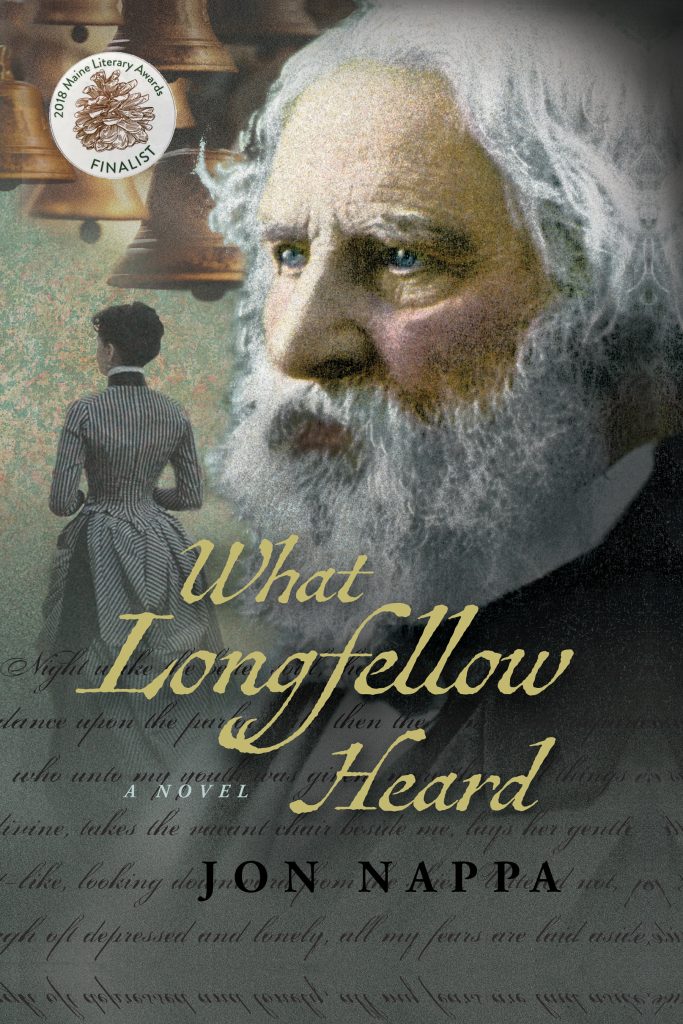
Carry Longfellow’s Words Into Your World.
Coming Soon:
The Longfellow Collection
Explore elegant merchandise inspired by Henry Wadsworth Longfellow, the man and his poetry — featuring beautifully designed prints of select poems, vintage-style journals, classic mugs, and more. Bring timeless literary elegance into your everyday life.
Check out: The Longfellow Collection
- Elegant art prints of Longfellow’s poetry
- Vintage-style journals for your own verses
- Literary quote mugs
- Canvas tote bags
- Optional decorative pillows
- Elegant bookmarks

We Would Love To Hear From You

To contact NIPI BOOKS, fill out the information request.
Check the box that best applies. You may also write in the message box.
Thank you for your interest.
